Ruts - Life After Death ? : A Profile
by John Clarkson
published: 18 / 4 / 2003
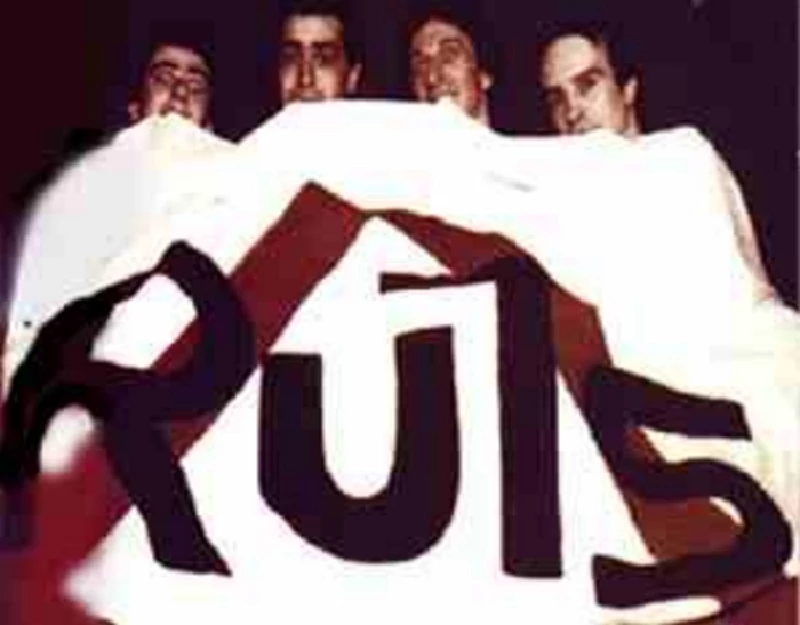
intro
Massively influential in punk circles, the Ruts came to an abrupt end when their singer, Malcolm Owen died of an heroin overdose shortly after they released their debut album. John Clarkson charts the band's history and examines their lasting legacy
It has been 23 years since the Ruts’ lead singer, Malcolm Owen, died at the age of 26 of an heroin overdose. 1980 was a terrible year for rock deaths, and Owen’s demise in his mother’s bath tub on July 14th of that year was just one in a long line of premature casualties which, in that 12 month period , also consisted of Joy Division's vocalist Ian Curtis, AC/DC frontman Bon Scott, Led Zeppelin drummer John Bonham, American singer-songwriter Tim Hardin and John Lennon. While Malcolm Owen’s tenure in the public spotlight was particulary short, and those other figures are all resultingly better known names, the Ruts are nevertheless fondly remembered and were massively influential in punk circles. The group, whose music combined a gritty. but melodic punk sound with elements of reggae and dub, attracted a strong British following between the summers of 1979 and 1980. Bands as diverse as the Wonder Stuff, the Almighty and Zion Train, whose members grew up listening to the Ruts, would go on to play covers of their songs in their sets. Both Nirvana and Fugazi named them as a major inspiration. New Model Army frontman Justin Sullivan meanwhile cites a Ruts concert that he attended in Bradford in 1979 as the biggest influence on his career, while 'West One (Shine on Me)’, the group’s final posthumous single,which came out a few weeks after Owen died, is the favourite song of all time of former Hanoi Rocks singer, Mike Monroe. A tribute band, Savage Circle, which takes its name from a song on ‘The Crack’, the only album which Owen recorded before his death, currently also regularly tours Britain. Every other year it seems as well another new Ruts compilation, or collection of previously undiscovered live or demo recordings, is released. The group, which came from the Hayes and Southall areas of West London, was born out of the remnants of a pub rock band, Hit and Run, in which two of its members, Dave Ruffy and Paul Fox, played bass and guitar respectively. Both Ruffy and Fox had started hanging out at the Vortex, a London punk club, with Owen, a local DJ and a school friend of Fox’s. After Owen attended a rehearsal in August 1977, the three musicians began playing together regularly, drafting in another Hit and Run member Paul Mattock on drums. Owen, Fox, Ruffy and Mattock initially toyed with calling themselves Malcolm and the Skulkng Loafers, but then decided to settle on the harder-hitting name of the Ruts. They made their live debut a few weeks later, playing four songs between two Hit and Run sets at a now long closed pub, the Target, in Greenford in West London. The show was by all accounts an immediate success, with punters shifting in from all corners of the barn-like Target to watch the set, and displaying an immediate far greater interest in the Ruts than the unfortunate headliners. All four of the songs of this first show -’Rich Bitch’, ‘Lobotomy’, ‘I Ain’t Sofisticated’ and ‘Out of Order’-would remain a regular part of Ruts set lists until the group’s collapse three years later. As the Ruts played other gigs to further acclaim, Fox, Ruffy and Mattock came up against increasing opposition from the other members of Hit and Run. Hit and Run had been offered the opportunity to record a disco version of ‘Greensleeves’ for Aristola Records, and one day when the trio turned up at a rehearsal they found other musicians playing in their place, and were faced with an ultimatum-they could stay with Hit and Run and leave the Ruts, or they would be fired. Mattock, who was Hit and Run’s principal songwriter, elected to remain with the band, which regrettably for him would fold soon afterwards, but both Ruffy and Fox, however, quit on the spot. The Ruts were joined by John “Segs” Jennings, a former Hit and Run roadie, on bass. Dave Ruffy meanwhile moved positions to drums. The group began a frantic schedule of playing shows, and also writing songs. Owen wrote the lyrics, while the rest of the band composed the tunes. They then recorded them as demos on to a tiny little Phillips cassette player, which they kept in their rehearsal room in a squat in the New Cross area of London. From the outset the Ruts were always a political group, and towards the end of 1977 they started playing benefit gigs on a regular basis for the then newly formed Rock Against Racism movement. One of the other bands that they played with on the bills at these concerts was Misty in the Roots, a highly regarded West London reggae act, that ran a community arts centre from a Southall squat, and which had recently set up a record label, People Unite. Misty in the Roots had put out two of their own singles as People Unite’s first releases. For their third release, they offered the Ruts in July 1978 a single deal. ‘In a Rut’, the Ruts debut, came out six months later in January 1979. Featuring several key elements and components which would in the course of time define much of the band’s sound, it incorporated together a jagged punk guitar riff with terse, menacing drumming and a clipped typically socially aware lyric from Owen. “When you’re in rut/You’ve got to get out of it” Owen howled in the chorus, which,as unemployment topped the three million mark in Britain, served as the perfect rallying cry for the nation’s disaffected and depressed youth. The B side, a second strident punk number ‘H Eyes’, was ironically, in light of what was about to happen, an attack on heroin. “You’re so young/You take smack for fun/It’s going to screw your head/You’re going to wind up dead” Owen sang in the song’s opening lines, chillingly prophesising his own fate. ‘In a Rut’ was released initially in a limited edition of 1000 copies. The band recorded a first session later on in January for the influential British DJ John Peel for his Radio 1 late night programme. The single received extensive airplay on the same show, and sold out immediately. Another additional 20,000 copies were pressed, and also sold out. The Ruts found themselves attracting the immediate interest of several other labels. While Ruffy and Jennings wanted to remain on People’s Unite or another independent label, Fox and Owen, who were both married, were keen to move to a major because they felt that this would offer them increased financial security, and persuaded the others to sign to Virgin. It was to prove an eventually costly mistake. The Ruts recorded another session for Peel in May of 1979, and then released their second single, ‘Babylon’s Burning’, in June. ‘Babylon’s Burning’ was the Ruts’ defining moment. Opening with the wailing sound of a police siren, it was originally going to be called ‘London’s Burning’. The band, however, changed its name because the Clash had recorded a song with the same title for their eponymous 1977 debut album. With Margaret Thatcher’s Conservative government having come to power in April of that year, the racist political party the National Front’s membership rising, and Britain in the midst of a major recession, it was the ideal soundtrack for its time, chronicling the inner city tensions that would eventually culminate in riots two years later in 1981 in the largely black communities of London’s Brixton and Liverpool’s Toxteth. “You’ll burn at you work/You’ll burn at your play/London is smouldering with ignorance and hate/And with anxiety/Babylon’s burning with anxiety” Owen forewarned, snapping his lyrics out against a backdrop of abrasive, klaxoning guitars and ferocious drumming. The single shot to number 7 in the charts. The Ruts were suddenly everywhere. They played their first full length tour of Britain later that month, supporting the Damned, and appeared as well on ‘Top of the Pops’. Extensive interviews featuring the band and Owen in particular were printed in most of the major rock publications and also transmitted on the radio. The group’s next single, ‘Something That I Said’,a savage attack on the duplicitious nature and shabby politics of a former friend, followed in September and reached a respectable number 29 in the charts. While the A side was another exuberant punk number, this third offering was equally notable for its B side, the sad and weary-sounding ‘Give Youth a Chance’, which was the band’s first foray on record into reggae. ‘The Crack ‘came out to much critical acclaim in October, and, getting to Number 16 in the British albums chart, captured the complete range of the band’s increasingly versatile sound. Both ‘Babylon’s Burning’ and ‘Something That I Said’ were included in the track listing. ‘Dope for Guns’, ‘S.U.S’, ‘Criminal Mind’, and ‘Backbiter’ were other socio-political punk numbers and similarly blistering in style.The nearly seven minute ‘It Was Cold’, however,in contrast, was smouldering and tense, and the closest the Ruts ever got to a ballad. The equally lengthy ‘Jah War’, which was released in December as the band’s next single, and which unfortunately did not chart, was the band’s second reggae recording, and, inspired by a real life incident, told of police brutality on an anti-National Front demonstration. The album was closed with ‘Human Punk’, which two decades on would give the author John King the title for his 2001 coming-of-age novel about a group of Slough punks. Recorded at the conclusion of a concert, it had Owen picking out members of the crowd to sing the chorus and caught all the raw rabble-rousing energy and intensity of a typical Ruts’ live show. “ I think I might as well tell you now you’re on the new Ruts album by the way”, Owen leered at his audience at the song ‘s finish, bringing it and the album to a sharp and dramatic conclusion, The Ruts had by now begun to play headline shows to increasingly sold-out crowds. Everything on the surface seemed well , but, even before ‘The Crack’ came out, the seeds were being sown for the band’s destruction. Owen had dabbled with heroin before, but, upset at the break-up of his marriage, and the increasing violence which was being brought to Ruts concerts by a right-wing skinhead factor, began to use drugs more frequently in the middle of 1979, and soon had fallen into addiction. Rumours started to circulate in the music press, as shows were cancelled, that he was dependent on drugs, and were at first strenously denied, and then shortly after the group played its third and final Peel session in February 1980, admitted. Over the course of the last few months of his life, Owen would go through a very public struggle to try to break his addiction. There were moments when it looked like he was winning. At one of the bands final shows in London at the Marquee, he broke down at the end of the set and told the audience that he thought that he had finally kicked the habit. An interview with Owen which appeared in ‘Melody Maker’ a few weeks before his death took place in his mother’s high rise flat in Southall, where he had gone back to live and to try and fight his dependency, and found him and Paul Fox, who was also present, in buoyant form enthusiastically looking towards his and the Ruts’ future. ‘Staring at The Rude Boys’, the final Ruts single to be released in Owen’s lifetime, was released in April, and went to number 22 in the charts. Telling of the tensions between punks and skinheads that were causing mayhem at the time in the nation’s clubs and discos, and also at the Ruts’ own concerts, it merged together a searing punk tune with brassy instrumentation from guest musicians the Barnacle Brothers, saxophonist Gary and trumpet-player Bill. A final wonderfully over-the-top comic Top of the Pops performance to promote the record found Owen, wearing a pork pie hat and a smart suit, lampooning a rude boy by pulling faces at the camera and dancing dementedly. It was the last time many of his fans would see him. While he continued to try to battle his addiction, he was, however, never quite able to shake off its grip. There were spells in and out of his hospital. More concerts were cancelled, and he became increasingly unreliable, turning up to rehearsals stoned or not bothering to show at all. Fox, Ruffy and Segs, frustrated at the increasingly long periods of inactivity, began to work together as a three piece and in a final desperate “tough love” attempt to save their friend, who they all had remained close to, and to try to force him off drugs fired him. It seemed to have the desired effect. Owen signed himself into a clinic at the end of June, and came out a fortnight later clean. On Friday 12 July two days before his death he went out with the other three Ruts to a club in Clapham and then afterwards asked each of them individually to work with him again on a single. They all agreed.The band had reformed. Owen, who was still feeling ill after having gone through withdrawal, then returned to his mother’s flat to rest. Fox, Ruffy and Segs spent the weekend in the rehearsal room, preparing the backing track for the single. Owen however took heroin again on Sunday 14th, and, his body now no longer used to the quantities of the drug that he had taken even a few weeks before, overdosed while he was in the bath. He slipped into unconsciousness and drowned. A backlash against the Ruts had begun in the music press when Owen had first admitted he was a drugs addict. ‘West One (Shine on me)’, the group’s soaring last single, which found the band experimenting again with Gary Barnacle’s saxophone, and in which Owen sung in cloaked terms about his heroin addiction (“Out in the dark and on my own/I’m stranded here with no way home”), however, earned good reviews when it was released in September, and won four Singles of the Week in the music press.It got to No 43. On the run-out groove of the record the band scratched in the words “Can I Use Your Bathroom ?” as a last personal tribute to Owen. A compilation album ‘Grin and Bear It ‘, which went to No 29 in the Albums chart, came out, three months after Owen’s death, in October. Featuring sleeve notes from the surviving members of the band, and compiling together all the singles, some of the B sides, and various otherwise previously unreleased tracks, it again won acclaim. The remaining Ruts elected to carry on, and recruited Gary Barnacle into the line-up. Segs took over on vocals. They thought about changing their name. Virgin, however. tried to talk them out of it and after much deliberation, the band , therefore, compromised by renaming themselves Ruts DC. DC stood for Da Capo, a Latin phrase which means “from the beginning”. An album, ‘Animal Now’ ,followed in 1981. It was an often enthralling record, which found the band experimenting further with reggae and also jazz-funk, and that thematically took off from where Owen had left off, combining more personal lyrics in which the group mourned their dead friend, with the usual attacks on hypocrisy and social injustice. It was, however, critically mauled and sold poorly. The band left Virgin later that year, £84,000 in debt, the victims of a poor publishing deal. Barnacle too quit at the same time to return to session work. A second and last Ruts DC album, ‘Rhythm Collision Dub Vol 1’, came out in 1982, and ,produced by reggae producer the Mad Professor, found the group moving, as its title suggests, deeper into dub, but also funk territory.The band returned to their independent roots for it, putting it on a small local London label, Bohemian. It was another solid affair, but again didn’t sell well,. With much of the original chemistry and impetusof the group now gone, the band broke up early in 1983. Dave Ruffy, Segs and Pual Fox have all gone on to successful other musical careers. Ruffy has become a much-in-demand session drummer, and has recorded and toured with the likes of Aztec Camera, Sinead O’ Connor, the Waterboys and the late Kirsty MacColl. Segs played for the Wolfgang Press after the Ruts DC split up, and is now a member of the internationally acclaimed group, Alabama 3. Paul Fox meanwhile has carved out a career for himself as a producer, and, for old times’ sake, plays the occasional gig with the tribute group, Savage Circle. Memories of Malcolm Owen, however, continue to remain fresh. Drugscope, Britain’s leading drugs charity, commemorated the 21st anniversary of his death by running a major charity gala dedicated to his memory in London in November 2001. The evening concluded with a set from Savage Circle, and Paul Fox being presented with a plaque by former Damned drummer Rat Scabies which tributed the Ruts achievements. Another Ruts compilation, ‘In the Can’, which collects together some of the demos they recorded before they signed to Virgin , came out in October of last year, and has sold well. Both Malcolm Owen and the Ruts have a permanent legacy. It seems unlikely that they will ever be forgotten.
Picture Gallery:-
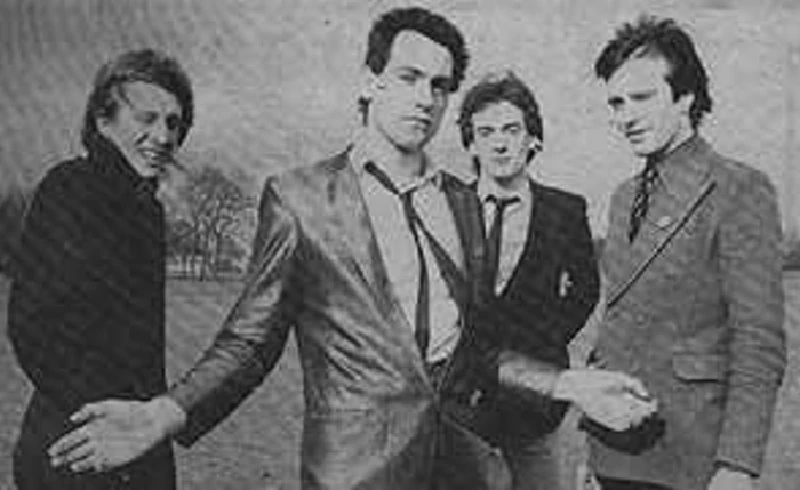
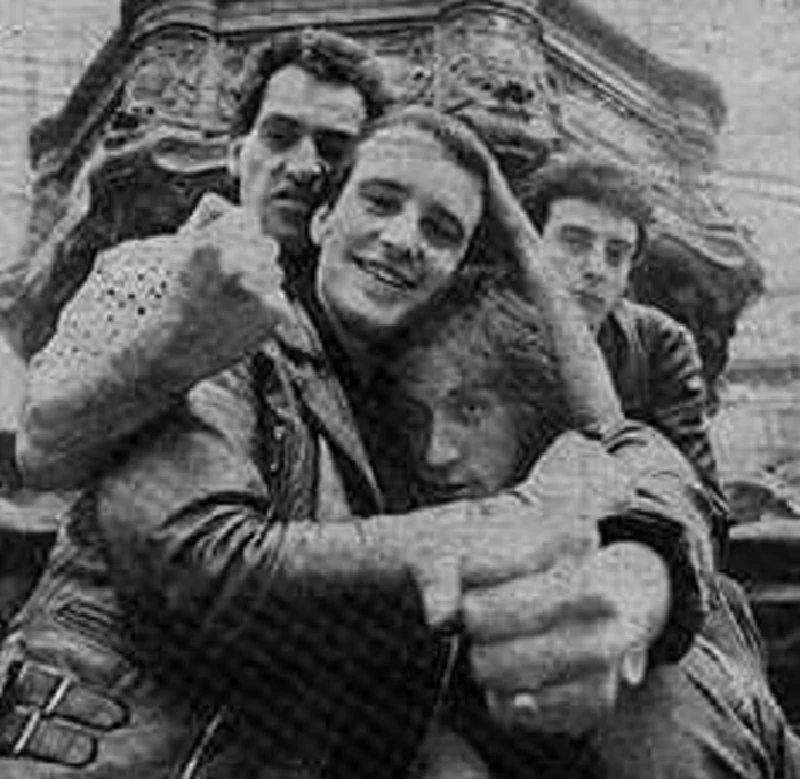
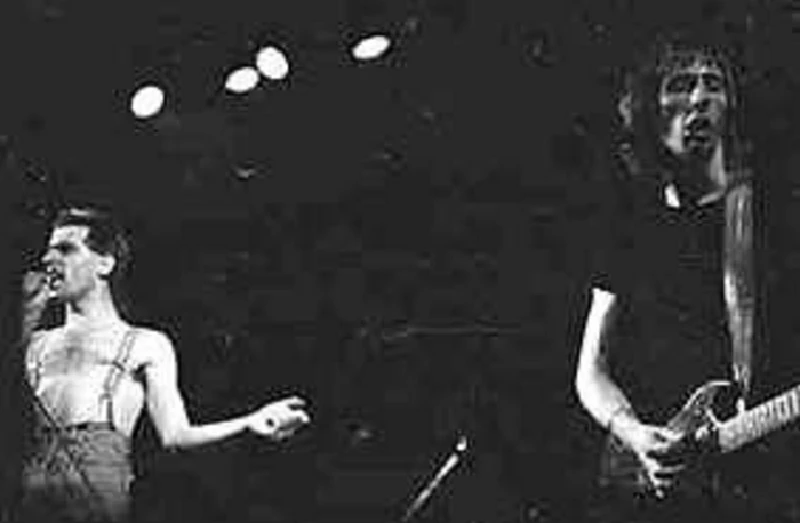
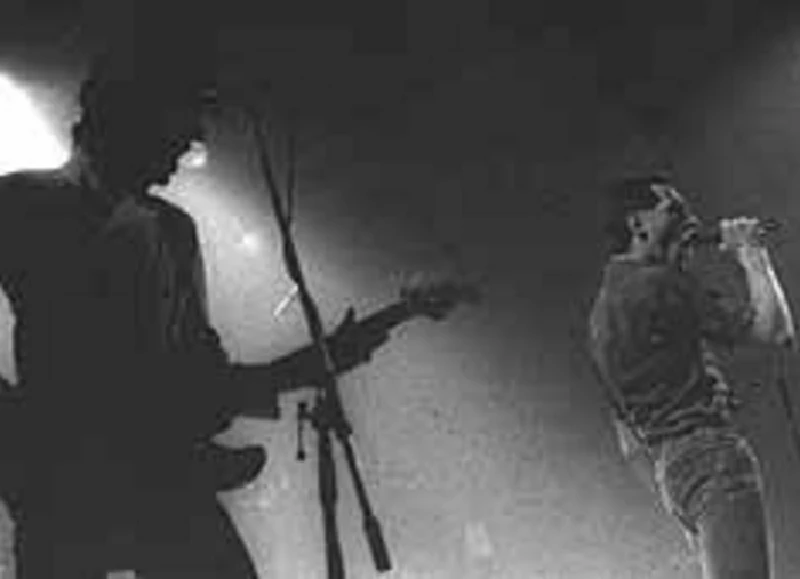
interviews |
|
Interview (2013) |
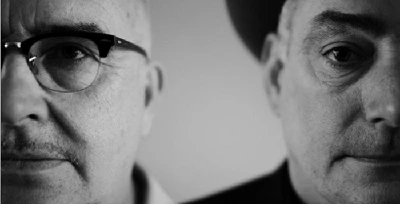
|
| The Ruts DC were formed out of the ashes of influential punk band the Ruts, after their singer Malcolm Owen died in 1980. Front man Segs Jennings talks about their first album in thirty years, 'Rhythm Collision Vol. 2', the Ruts legacy and why he had decided to perform Ruts songs for the first time |
reviews |
|
Punk Singles Collection (2006) |
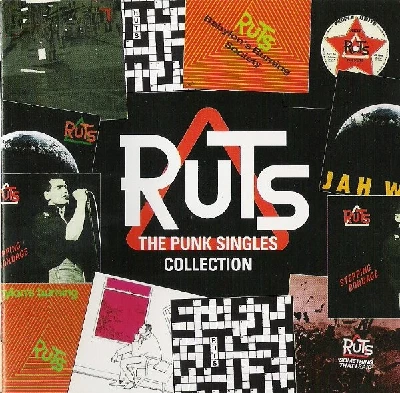
|
| Superb collection of classic singles from reggae-inspired 70's punks the Ruts, many of them released in their original 7” versions for the very first time on CD |
most viewed articles
current edition
Carl Ewens - David Bowie 1964 to 1982 On Track: Every Album, Every SongArmory Show - Interview with Richard Jobson
John McKay - Interview
Colin Blunstone - Thalia Hall, Chicago, 16/7/2025
Bathers - Photoscapes 1
Billie Eilish - O2 Arena, London, 10/7/2025
Loft - Interview
Visor Fest - Valencia, Spain, 26/9/2025...27/9/2025
Sir Tim Rice - Interview
Robert Forster - Interview
previous editions
Heavenly - P.U.N.K. Girl EPManic Street Preachers - (Gig of a Lifetime) Millennium Stadium, Cardiff, December 1999
Beautiful South - Ten Songs That Made Me Love...
Peter Perrett - In Dreams Begin Responsibilities Interview Part One
Boomtown Rats - Ten Songs That Made Me Love....
Oasis - Oasis, Earl's Court, London, 1995
Coldplay - Wembley Arena. London, 16/8/2022
Trudie Myerscough-Harris - Interview
Pixies - Ten Songs That Made Me Love...
Prolapse - Interview
most viewed reviews
current edition
Davey Woodward - Mumbo in the JumboSick Man of Europe - The Sick Man of Europe
Lucy Spraggan - Other Sides of the Moon
Blueboy - 2
Amy Macdonald - Is This What You've Been Waiting For?
Bush - I Beat Loneliness
Suzanne Vega - Flying With Angels
Phew, Erika Kobayashi,, Dieter Moebius - Radium Girls
Alice Cooper - The Revenge of Alice Cooper
Cynthia Erivo - I Forgive You
related articles |
|
: Interview (2023 |
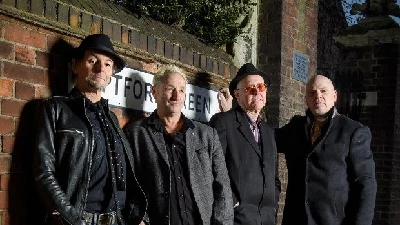
|
| Bringing together members of The Stranglers, The Damned, Ruts DC and Johnny Moped, Wingmen recently completed their debut tour showcasing their acclaimed debut album. Lead singer, guitarist and Stranglers’ frontman Baz Warne chatted to Denzil Watson about the group’s progress |
Pennyblackmusic Regular Contributors
Adrian Janes
Amanda J. Window
Andrew Twambley
Anthony Dhanendran
Benjamin Howarth
Cila Warncke
Daniel Cressey
Darren Aston
Dastardly
Dave Goodwin
Denzil Watson
Dominic B. Simpson
Eoghan Lyng
Fiona Hutchings
Harry Sherriff
Helen Tipping
Jamie Rowland
John Clarkson
Julie Cruickshank
Kimberly Bright
Lisa Torem
Maarten Schiethart